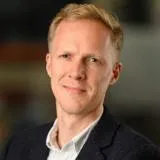31 January 2023
New project will give citizens a say on major economic issues
A new project launched by a King’s College London academic will give citizens a say on the big economic issues affecting the UK.

The Citizen’s Economic Council on the Cost of Living will see 50 UK citizens learn about a range of fiscal policy issues related to the cost of living. Together with experts and facilitators, they will generate ideas and deliberate over alternative proposals and principles, before coming to a series of policy recommendations.
A report will then be compiled by project co-ordinators and presented to policymakers to use in decision-making processes.
With funding provided by Friends Provident Foundation and Barrow Cadbury Trust, the project is led by Dr Christopher Holmes in partnership with Reema Patel, Morwenna Byford and Kate Mesher from research specialist firm Ipsos. The project also features an advisory board comprised of some of the UK’s foremost experts and commentators on economic policy and related issues.
Dr Holmes, from the Department of European and International Studies at King’s, said: “Whilst there is a central role for technocratic governance-by-experts in the complex fields of fiscal and monetary policy, economic policy as a whole is more politicised than at any time in recent memory, and this new politics of the economy needs additional sources of ideas and legitimacy. That’s what this project will provide.
“Deliberation plays a key role in ensuring that complex economic concepts are opened up for wider exploration and engagement by the public, as well as ensuring that people can consider and balance some of the difficult choices presented within the current context through time and thoughtful consideration in collaboration with policy stakeholders and economic experts.
“The point of this project is not to go over complex detail on precisely how policy should be enacted, but rather to create time and space for a demographically diverse and representative group of UK citizens to become informed about economic policy and to successfully deliberate on the basic choices to be made and the principles that should underpin those choices.”
The project will begin with a series of sessions that are scheduled to take place in the spring. The council will feature a group of 50 participants drawn at random, but controlled to ensure representation of age, gender, ethnicity and location across the four nations of the UK.
Read more...
You can find out more about the project here.

